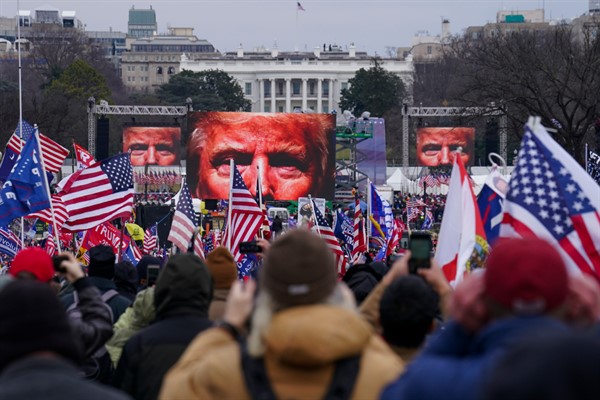There are at least two ways in which the newly approved Congressional Select Committee on the events of Jan. 6 might go about investigating the violent storming of the U.S. Capitol building in Washington on that day. One is to treat the assault as a one-off—an aberrant security breach in which thousands of people who supported former President Donald Trump stormed the seat of American democracy to protest the 2020 certification of election results that put President Joseph R. Biden in the White House. Another is to approach the mob violence that day as the culmination of a yearslong influence campaign involving some of Trump’s most powerful allies. Either way, the eventual findings of the soon-to-be-seated Congressional Select Committee will, no doubt, be controversial.
What matters now though is that the inquiry is comprehensive and that it is driven by evidence of who did what—and who failed to act and when. This evidence includes countless terabytes of digital data out there in cyberspace about the widespread information disorder that fanned the flames of insurrection that day. And no inquiry will be complete without scrutiny of the claims made by tech companies about what they did or did not do to tamp down roiling conspiracy theories, deal with disinformation and check the amplification of Trump’s false claims about election fraud.
Any way you slice it, the nearly straight party-line vote in favor of standing up the inquiry in the House of Representatives on Wednesday appeared to confirm what is already well known: America is and likely will continue to be far too divided over what happened on Jan. 6 to reach consensus on a shared narrative. That became obvious after Senate Republicans shot down a proposal in May to set up a bipartisan 9/11-style independent commission on the assault on Congress. It is perhaps not surprising that only two members of Trump’s Republican Party—Reps. Liz Cheney and Adam Kinzinger—are already feeling the heat for their decision to vote with the Democratic majority in the House in favor of the select committee.

